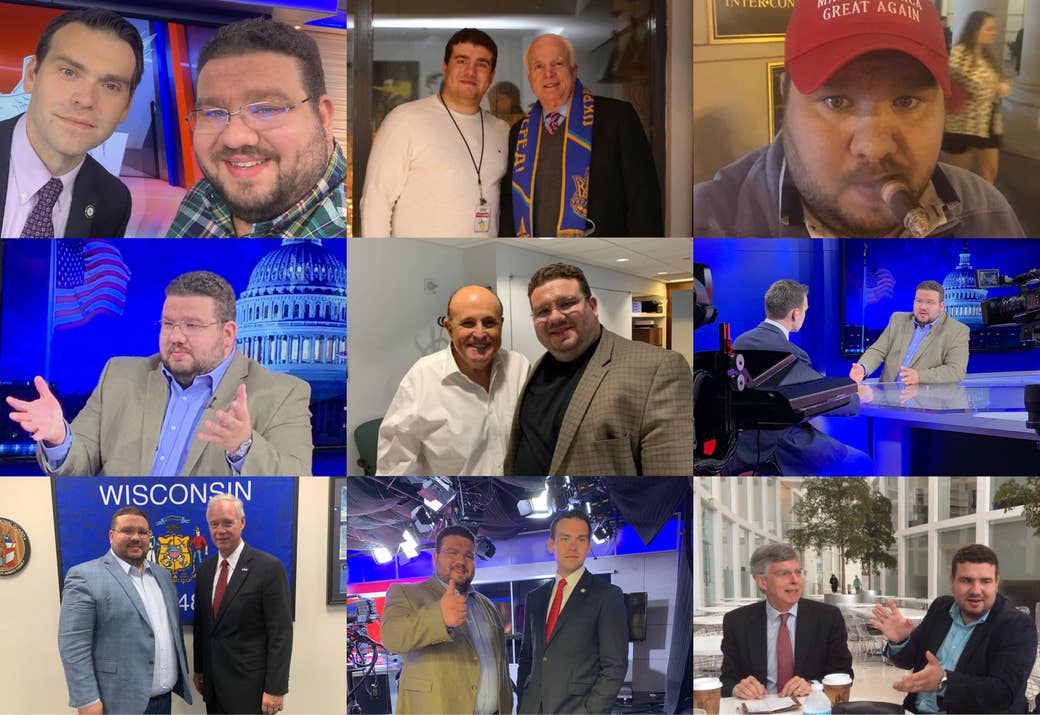
For the last year, Republican President Donald Trump, former New York City mayor Rudy Giuliani, and Attorney General Bill Barr have led a bumbling investigation into the right-wing conspiracy theory that Democrats conspired with Ukrainian nationals to frame the president’s campaign for collusion to delegitimize his 2016 election.
Thanks to testimonies leaking out from the impeachment inquiry, we’ve learned that Trump and Barr have investigated at least three pieces of the Spygate conspiracy. We’ve also learned that Giuliani, working as a lawyer for the president, spent the spring with Ukrainian nationals, hoping to find evidence that Democratic operatives faked the hack of the Democratic National Committee’s servers to frame Russia for trying to swing the 2016 election in Trump’s favor and then hired the American cybersecurity firm CrowdStrike to cover it up. Members of Trump’s inner circle have been pushing this theory since the summer of 2016, according to new documents obtained by BuzzFeed News from former special counsel Robert Mueller’s investigation. There is no proof, of course, that any of this happened.
But there is an alternate dimension that exists across anonymous message boards, Facebook groups, rabid Twitter gangs, radicalized YouTube channels, and One America News Network segments where this conspiracy is accepted fact. This other reality quickly scrambles after every new development that could hurt the credibility of the Trump presidency and creates a parallel issue for its inhabitants to fixate on. And following a whistleblower complaint in September containing a partial memorandum of a call between Trump and Ukraine President Volodymyr Zelensky, this Trump World has its own whistleblower too.
His name is Andriy Telizhenko. And due to a 2017 investigation into possible Ukrainian attempts to influence the 2016 US presidential election by Politico, which continues to go viral inside conservative Facebook groups, he has been able to crawl out from the swamps — and propel himself from a junior staffer at a minor embassy to audiences with senators, the president’s lawyer, and lucrative contracts with politicians at home in his native Ukraine. The 2017 Politico story has been so prolific among Republicans that it’s shaping the impeachment inquiry. According to testimony released on Monday by congressional investigators, Steve Castor, chief investigative counsel for the US House of Representatives Committee on Oversight and Government Reform, asked former ambassador to Ukraine Marie Yovanovitch about it during her deposition last month.
There is no proof, of course, that any of this happened.
Alina Polyakova, a director and fellow at the Brookings Institute, told BuzzFeed News that the Politico piece was likely the beginning of the Ukrainian collusion narrative. “To me, this is the origin story of that narrative,” she said. “We've seen now Giuliani and people around him pull data points [from the piece] that in a conspiratorial mind look connected but aren't.”
From December 2015 to June 2016, Telizhenko worked in the Ukrainian Embassy in Washington, DC, and has spent the years since his brief stint there pushing the Ukrainian collusion conspiracy. He said he does so because the spotlight keeps him safe from threats to stay quiet about what he knows.
“I'm doing this to protect myself,” he said.
The 29-year-old former diplomat maintains a profile similar to any number of low-level conservative political operatives, whether in the United States or elsewhere. His social media is replete with photos of him smiling with conservative American politicians. In September, he tweeted photos of himself smoking a cigar wearing a Trump hat. He splits his time between Washington, DC, and Kyiv, in and out of meetings with US Republicans and Ukrainian oligarchs respectively.
But Telizhenko possesses a key piece of currency that many of his peers don’t: a major Politico story that includes his name significantly. Since the piece’s publication, he’s been able to parlay the name-check into a political consultancy business and meetings with senators and the president’s personal lawyer.
Written by Ken Vogel and Ukraine-based reporter David Stern, the story is titled “Ukrainian Efforts to Sabotage Trump Backfire.” Vogel left Politico in June 2017 and joined the New York Times, where he has continued to cover Ukraine’s role in US politics, Stern has recently been doing the same for the Washington Post. Although it was largely forgotten in the mainstream discourse, the 2017 story caused a massive shockwave across the conservative fringe. It’s regularly posted to 4chan and Reddit as smoking gun proof of Democratic collusion. It was linked to by right-wing news site Daily Wire as recently as last month.
Telizhenko, then working for the Ukrainian Embassy in Washington, told Vogel and Stern that in March of 2016, Oksana Shulyar, a top aide for Ukrainian Ambassador to the US Valeriy Chaly, asked him to help Ukrainian American DNC contractor Alexandra Chalupa research connections between Trump, his campaign chair Paul Manafort, and the Russian government.
“To me, this is the origin story of that narrative.”
“Oksana said that if I had any information, or knew other people who did, then I should contact Chalupa,” Telizhenko told Politico.
The Ukrainian Embassy disputes Telizhenko’s version of events. And Chalupa wrote of the article on Facebook at the time, “The title and theme are nonsense.” She went on to say that, “In my experience, the Embassy of Ukraine was always very careful throughout the U.S. election to stay neutral and tried to engage both campaigns. They were always professional and upfront about not getting involved, even where Manafort was concerned.” Vogel could not be reached for comment. Stern declined to comment on Telizhenko’s inclusion in their story.
"I stand by my reporting,” he told BuzzFeed News. “Of course, there are things that I've learned since then that would make it a fuller piece, but they haven’t changed the basic thrust of it.”
Telizhenko presents himself as stumbling across the purported conspiracy inadvertently, claiming that Chalupa solicited the Ukrainian Embassy’s assistance to build a case against Manafort, who was later indicted and found guilty on eight counts and pleaded guilty to counts of conspiracy.
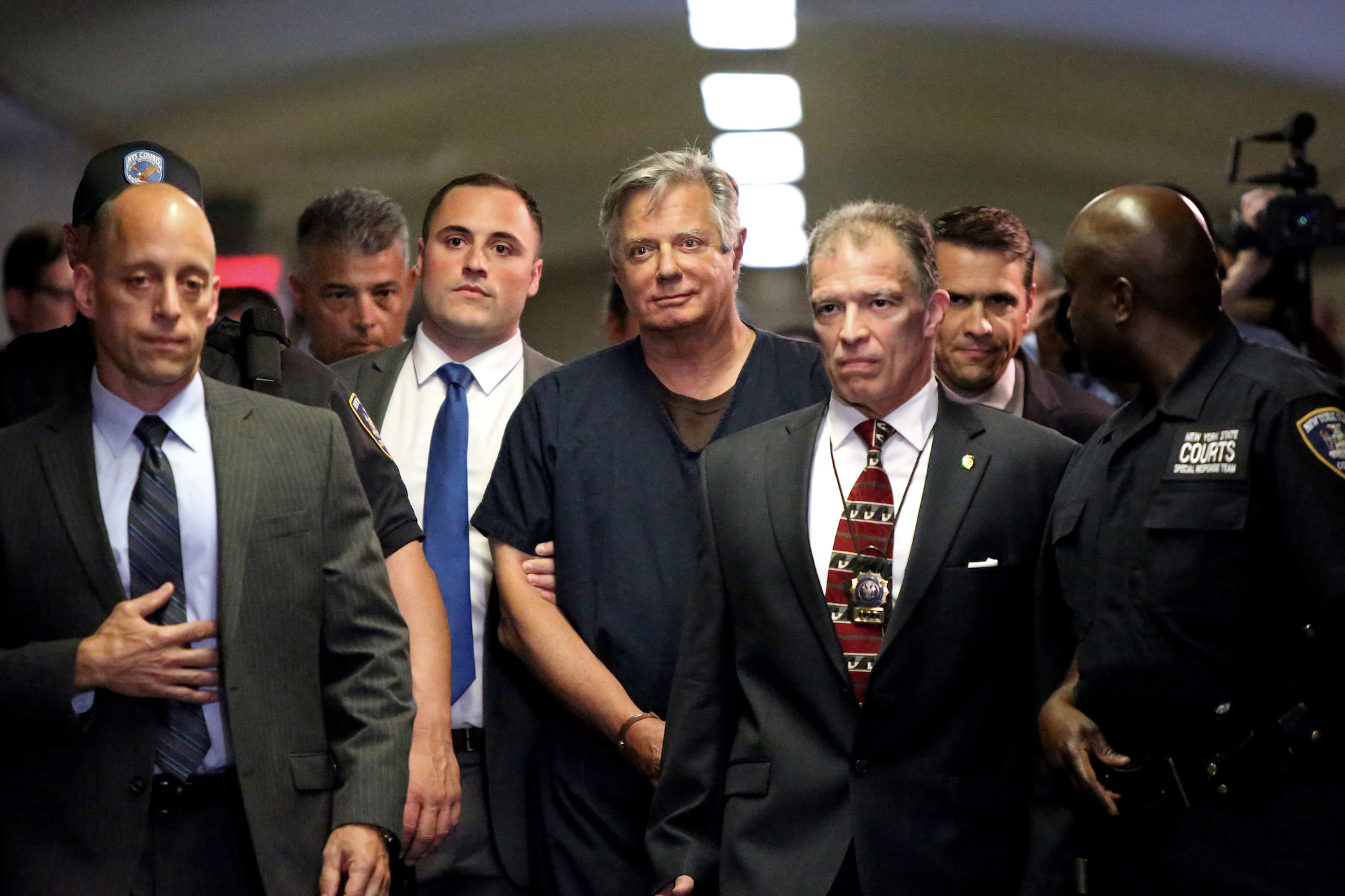
“I was called up [by Shulyar] during my lunch break — was not told who I was going to meet over the phone,” Telizhenko told BuzzFeed News in an interview. “Then Chalupa starts talking about who she is. She said she's a DNC operator, but she talks about all this stuff — I don't know the details… She starts asking for all this stuff on the Trump campaign.”
Following his interview with Politico, Telizhenko said that he felt pressured to resign from the embassy and returned to Kyiv. He said that in October 2017, he received a phone call from a friend at the Ukrainian prosecutor general’s office warning him that officials in then-president Petro Poroshenko’s administration might try to block his exit from the country. He left Ukraine and, according to an email he provided BuzzFeed News with, attempted to seek political asylum in Canada in January 2018. The Ukrainian Embassy in Washington, DC, did not return a request for comment.
After leaving the embassy, Telizhenko opened a political consulting firm called Golden Lion Strategies, incorporated in Canada. He’s since been hired by Pavel Fuks, the Ukrainian oligarch who sought a deal to build a Trump Tower Moscow in 2006 and who brought Giuliani to Ukraine in 2017, as well as Andriy Artemenko, a pro-Russian Ukrainian parliamentarian.
“When I came back [to Ukraine], I said, ‘OK, I'm going to be quiet. I'm not going to get involved,’” he said.
Except he didn’t stay quiet. Instead, Telizhenko resurfaced in the summer of 2018 on the Ukrainian news site Strana.UA, whose editor fled Ukraine for Vienna amid threats to his life in 2018. Telizhenko repeated his story to the pro-Russian outlet — Chalupa tried to solicit help from the Ukrainian Embassy to do opposition research on Manafort. But in this story, he claimed that Poroshenko worked with Chalupa to discredit the Trump campaign. Telizhenko also mentions his appearance in the Politico story as a way of adding legitimacy to his story.
The Strana interview came only two weeks after President Trump coined the term “Spygate” in a tweet on May 23, 2018. Trump accused the FBI and the Obama administration of spying on his 2016 campaign, basing the claim off a New York Times report that the FBI had sent an informant to meet with former Trump campaign staffer George Papadopoulos to investigate Russian collusion. Russian state media pounced on Spygate, as did Fox News. Telizhenko didn’t mention Spygate specifically in his interview but what he said was in line with Trump’s belief that Democrats tried to hijack his presidential win.
Telizhenko hustles hard on social media. In the lead-up to his Strana interview being published, Telizhenko tweeted multiple times at President Trump and attacked a BBC report alleging Michael Cohen was paid by Poroshenko to set up talks with the Trump administration. But he has lines he said he will not cross, claiming that he refuses to speak to Russian-owned or pro-Russian media: “I will never be involved with that, because Russia is an aggressor in Ukraine.”
He may not have to. Russian-based and pro-Russian media amplify him without Telizhenko’s direct participation. The same day the Strana article went live, June 12, 2018, British journalist Oliver Richardson and writer Angelina Siard translated the article into English and posted it to Richardson’s site, stalkerzone.org, which describes itself as “anti-capitalist, anti-war, anti-liberal." Richardson and Siard’s names appear as co-bylines elsewhere including pro-Russian news sites Russia Insider and the Saker. When reached for comment, Richardson accused BuzzFeed News of being funded by “neocon cash" and declined to comment. Telizhenko said he was aware of Stalker Zone’s translation, but said he has never spoken to anyone involved with Stalker Zone.
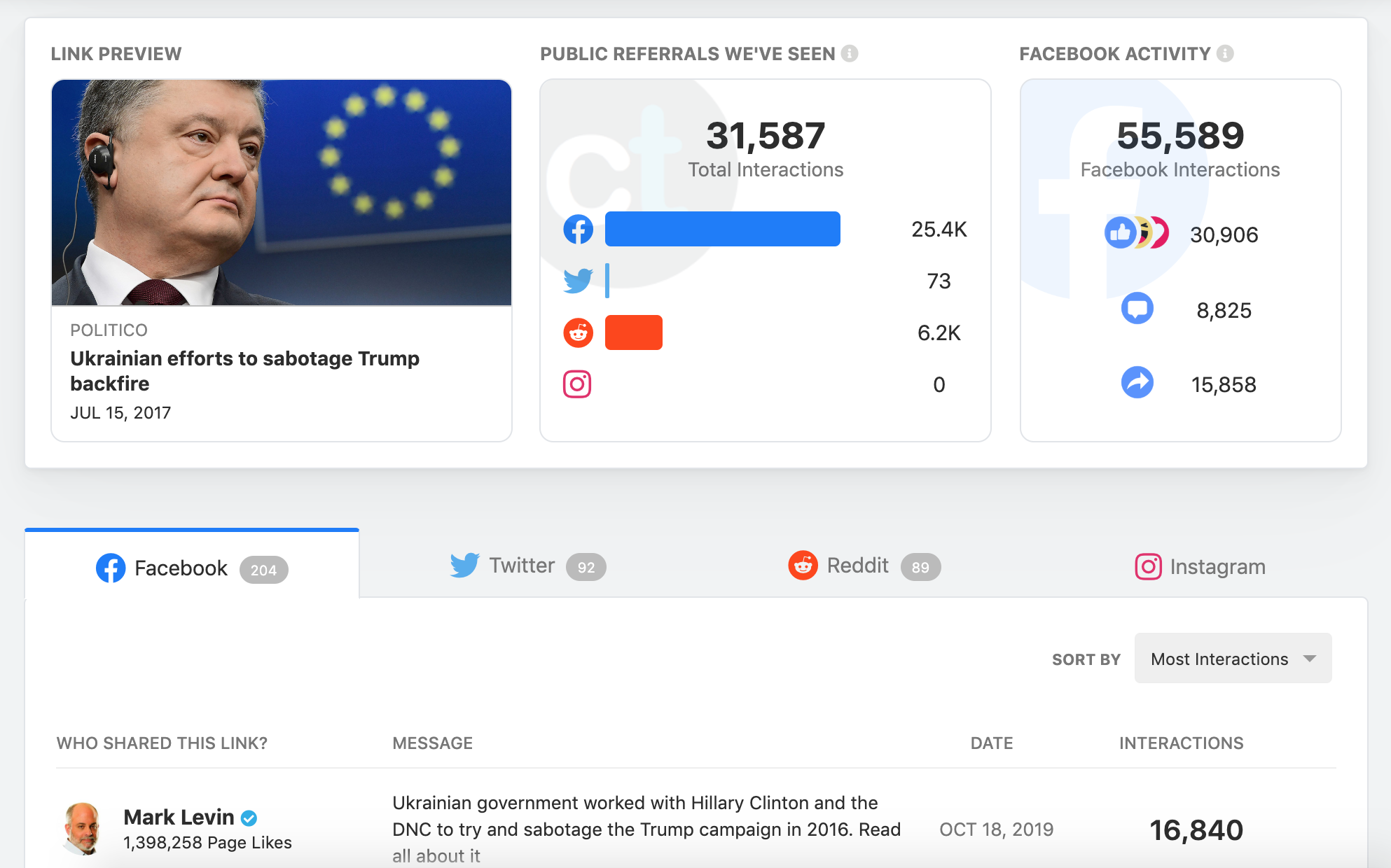
Richardson and Siard’s translation, according to social metrics site BuzzSumo, was particularly popular on Twitter and r/The_Donald. “There is a real story here and not BS fabricated Russian crap,” read the top comment on a r/The_Donald post about the story. “See here for background info. This is a bombshell I think." — and then the user links to the 2017 Politico story.
“I don't know if [Stalker Zone] is Russian. Maybe it's Russian,” Telizhenko said. “That's why I was paranoid about that. I was asked about a lot of Russian news sources, media sources, big ones, to do an interview with them, but I never did an interview with them.”
Except he did.
The first original English interview with Telizhenko of the post-Spygate cycle was conducted by former Breitbart journalist Lee Stranahan, who left the hyperpartisan news site in April 2017 to join Russian state-run news site Sputnik News. Stranahan, following his move to Sputnik News in April 2017, told the Atlantic, “I’m on the Russian payroll now, when you work at Sputnik you’re being paid by the Russians. That’s what it is. I don’t have any qualms about it.”
Stranahan conducted the interview on Periscope, but it was soon embedded and written up by Sputnik News, which included a link to the 2017 Politico article as a way to validate the Stranahan conversation. “I spoke to Lee Stranahan because he was asking for an interview for a long time. And he promised it wouldn't go on Sputnik, but it went on Sputnik. But he did it in a professional way. He said, ‘I am not pro-Russian,’” Telizhenko said. “That was the deal.”
Following Stranahan’s interview, Telizhenko started appearing more frequently in American far-right media. In November 2018, he appeared on the same Infowars radio show episode as Roger Stone. Gateway Pundit wrote multiple stories about him, the first in December 2018 and the second in March this year.
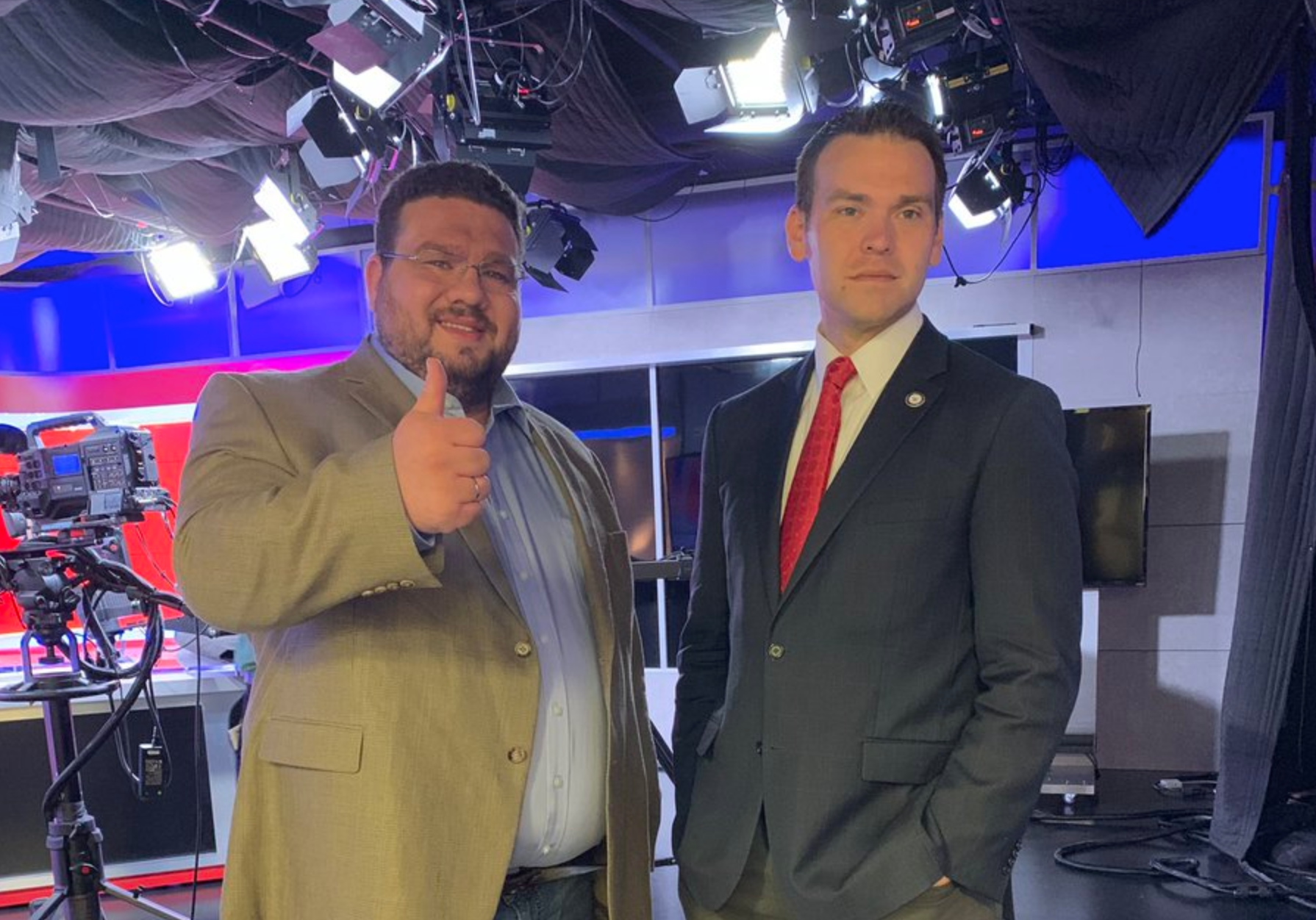
By this spring, Telizhenko had reached a furious pace in tweeting about Ukrainian collusion. “I started reaching out to right-wing media. I also reached out to left-wing media in some cases, but they never replied,” he said. A typical tweet reads: “Also look into DNC Ukraine collusion from Politico article of Jan 2017.”
If Telizhenko was doing outreach to left-wing media, it wasn’t on Twitter. His tweets from that period are exclusively directed at right-wing politicians and influencers. On March 20, Telizhenko tweeted the Gateway Pundit article at far-right activist Jack Posobiec and Donald Trump Jr. The next day, he tweeted at John Solomon, a former opinion writer at the Hill, then at Fox News host Sean Hannity, and then at Solomon again.
“I wanted someone to look into my story,” Telizhenko said. “I effectively reached out to them because I figured they were also interested in something in Ukraine.”
On March 24, Telizhenko went on another Twitter self-promotion push, tweeting at Fox News contributor Sara Carter and host Sean Hannity, asking them to “look into DNC Ukraine collusion.” Then he tweeted at Dan Bongino, then at Hannity again, then at Bongino again, then Judicial Watch President Tom Fitton and President Trump, then finally at Republican Florida Rep. Matt Gaetz. Telizhenko’s tweetstorm began to wind down on March 25 with a tweet at Giuliani; then on March 27, Telizhenko tweeted the Politico article at Giuliani and Trump one last time.
None of the big names Telizhenko tweeted at publicly engaged with him, either via a reply, like, or retweet. None of them follow him either. But a month later, the tweets to Solomon paid off, when the Hill ran an interview with him. (Telizhenko told BuzzFeed News that Solomon reached out to him.)
Solomon’s work has shaped much of the conservative news coverage around the Ukrainian–DNC collusion conspiracy theory. Solomon began reporting on possible Ukrainian collusion in April this year, publishing allegations made by Kostiantyn Kulyk, the deputy head of Ukraine’s prosecutor general’s International Legal Cooperation Department, which claimed Ukrainian law enforcement had evidence that Democrats attempted to interfere in the 2016 election.
Solomon’s first interview with Telizhenko, published on April 25, was the most-shared story featuring the Ukrainian since the Politico story. According to BuzzSumo, it received 68,000 engagements on Facebook and 34,000 shares on Twitter. According to social metrics site Crowdtangle, the two largest Facebook groups or pages that linked to it were the Hill’s main page (1.3 million followers) and "The Committee to Defend the President" (over 880,000 followers). Of the four Hill articles Telizhenko’s name has appeared in since last spring, Solomon, who did not return requests for comment, has written three.
Telizhenko also worked in Ukraine’s prosecutor general’s office, between June 2014 and November 2015, before Yuriy Lutsenko became prosecutor general, but overlapping with Ukraine’s special anti-corruption prosecutor, Nazar Kholodnytsky, whom Giuliani interviewed in 2019.
“We kept in touch. We talked for some time,” Telizhenko said of Kholodnytsky. “Last time I spoke with him was last year.”
It looks as if his efforts to curry favor with Trump’s inner circle by members of the Ukrainian prosecutor general’s office were actually part of a larger plan to oust Marie Yovanovitch, the US ambassador to Ukraine and a vocal anti-corruption critic. The Trump administration recalled Yovanovitch in May.
In a deposition given to congressional committees last month, she said that she was told that Trump had lost confidence in her and that there had been a concerted campaign against her and pressure from the president to remove her since the summer of 2018.
But Telizhenko denied that Ukrainian prosecutors coming forward had anything to do with the ousting of Yovanovitch. “They just wanted to protect what was going on in the prosecutor's office from the interference from the liberal-sided state department officials,” he said.
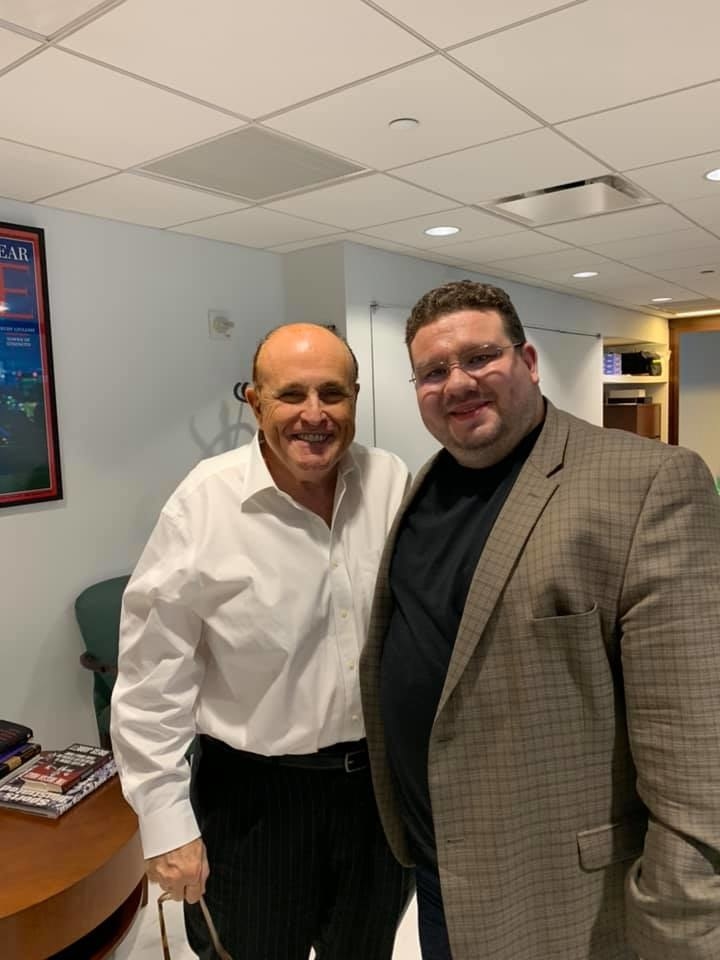
According to testimony released this week, Telizhenko’s Politico interview is still shaping how US conservatives think about 2016. In her deposition, Yovanovitch was questioned specifically about the 2017 Politico story by Steve Castor, the chief investigative counsel for the House Oversight Committee.
“This is in a Facebook post. I have a Politico article here,” Castor said, according to the transcript of the deposition. “This is a Politico article from January 2017, so this is the beginning of your term. Have you ever seen this article before?”
Yovanovitch says that she doesn’t remember it specifically. Castor summarizes the article and asks Yovanovitch what she knows about Chalupa. Yovanovitch replies that all she knows is what she’s seen in the media.
Although Telizhenko’s conservative media blitz may not have landed him on Fox News, it was successful enough to get him a seat at the table with Giuliani — literally. According to the joint US House committees’ investigation and confirmed by Telizhenko, Republican operative Victoria Toensing organized a meeting between him and Giuliani at the former mayor’s office in New York in May. (Toensing also currently represents Solomon.)
“I had a chance to reach out to Mr. Giuliani in May through [Toensing], who I knew prior from Washington,” he said. “She called Mr. Giuliani and he knew about my story. He heard about it. We spoke on the phone. And I came up to New York. I basically went to go see him.”
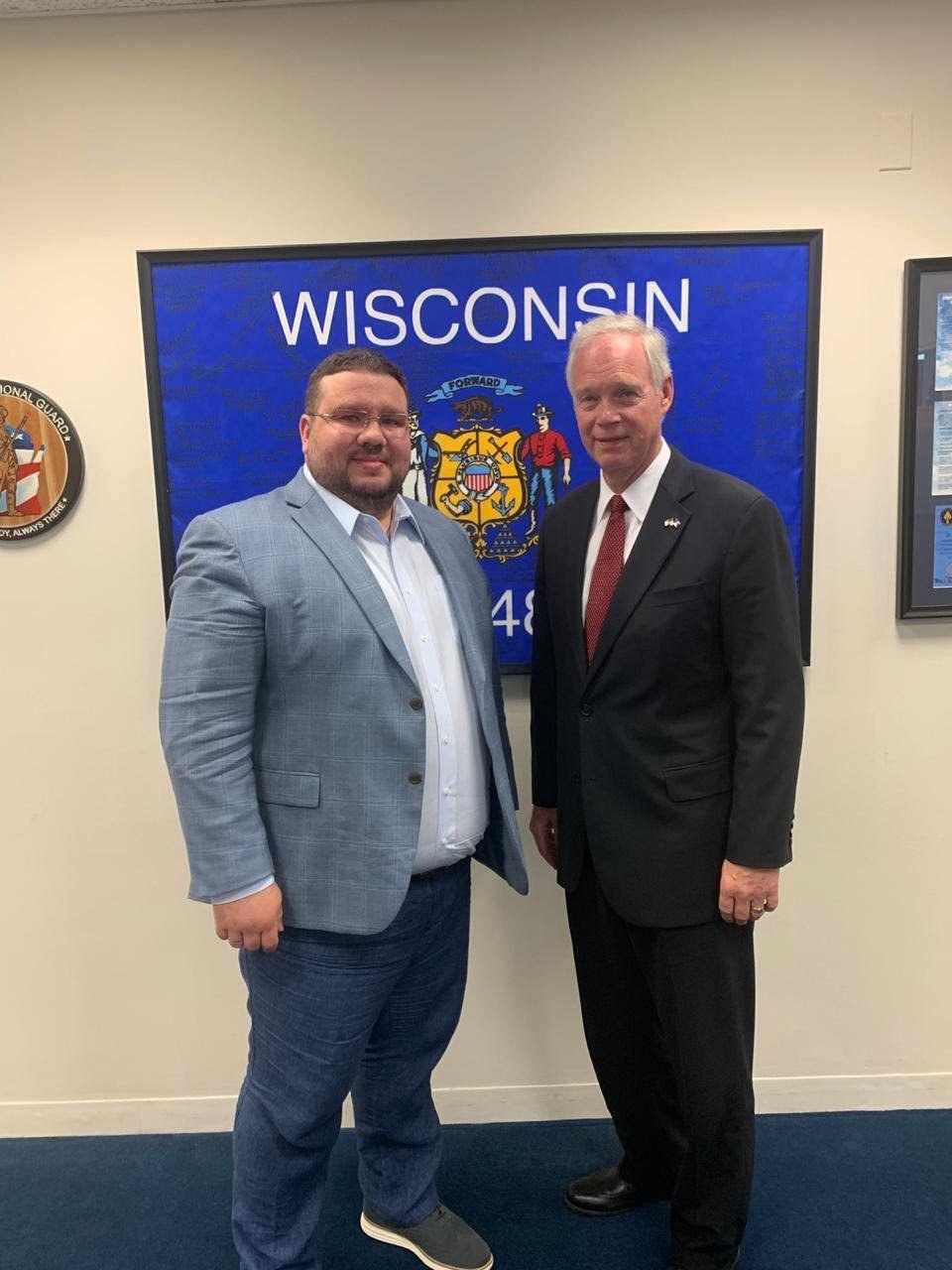
Telizhenko said he was interviewed for five hours. According to him, Giuliani said that he was representing Trump, that he was the president’s personal lawyer, and that he was working on proving that the DNC had colluded with Ukraine in 2016 and that Hunter Biden had sought the dismissal of the country's top prosecutor, Viktor Shokin. Giuliani said he was collecting evidence that he planned to give it to the FBI and DOJ (it’s unclear if the evidence was ever turned over).
“He really tried to get to the bottom of things and collect as much information as he could,” Telizhenko said. “He had already had insights about things and he had questions about everything.”
A month after the interview with Giuliani, Telizhenko met with Republican Wisconsin Sen. Ron Johnson in Washington, DC. On July 15, the Ukrainian tweeted a photo of the two men together. Telizhenko said Johnson’s staff sought him out. He was in DC, and they brought him to discuss Ukrainian politics, the “DNC issue,” and, specifically, the 2017 Politico story. His meeting with Johnson lasted at least 30 minutes, and he then met with his staffers for an additional five hours. Johnson’s office could not be reached for comment.
Johnson has emerged as a central figure in the impeachment investigation, both as an investigator and a figure in the investigation. He’s the chair of the Foreign Relations Subcommittee on Europe and Regional Security Cooperation, vice chair of the Senate Ukraine Caucus, and chair of the Homeland Security Committee.
He’s also been named in testimony by two witnesses. US Ambassador to the European Union Gordon Sondland testified earlier this month that Trump urged him and Johnson to talk to Giuliani about Ukrainian collusion. Bill Taylor, currently the top US diplomat in Ukraine, testified that Johnson and Democratic Connecticut Sen. Chris Murphy told Ukrainian President Zelensky that he should not risk bipartisan support in Washington “by getting drawn into U.S. domestic politics.”
Throughout it all, the engine of Telizhenko’s rise from low-level embassy employee to alt-whistleblower is the Facebook traffic around the 2017 Politico story that names him. According to Crowdtangle, on Sept. 23 of this year, the story started to go viral on Facebook again — a day after President Trump acknowledged that he had discussed Hunter Biden and a missing DNC server in a phone call with Ukraine’s president. It began with a user from Flushing, New York, sharing it to a 3,000-person group called “YourVoice America Group."
“While the Democrats and the lapdog media has been spending their time making up Trump Administration scandals, they’ve been ignoring the real political scandals coming out of Ukraine,” the user wrote.
Then that same user shared with the same copy-and-pasted the same text to three other groups, “Crowdsource the Truth,” “LIFT — Long Islanders for Trump,” and “ActivistsUnited for Transparent Democracy” in quick succession. The Politico link made its way through a network of fan groups for Fox News hosts like Jesse Watters, Laura Ingraham, and Tucker Carlson. It finally got its first surge of traffic on Oct. 1, when it was shared to “Bill O’Reilly fan group.” The next day, it was on Rush Limbaugh’s verified Facebook page where it was shared 700 times. Two weeks later, it was shared on the verified Facebook page for Mark Levin, a right-wing radio host, where it was shared 7,000 times.
“I don't like that [the Russian media] is using this. I'm against it.”
And from the fan pages, Telizhenko finally made it to the mainstream of conservative media. His name appeared in Fox News article for the first time in September. He appeared on Glenn Beck’s YouTube show on Oct. 19. The episode was titled “Whistleblowing AGAINST the DNC.” Telizhenko also managed to snag a segment on One America News Network, being interviewed by Jack Posobiec.
Throughout everything, Telizhenko has vehemently denied working with Russian media. “I don't like that [the Russian media] is using this. I'm against it. I'm getting calls from the Russians asking for an interview,” he said.
At the same time, though, when asked how he feels about the fact that what he’s doing could be used to disrupt the impeachment process or the 2020 US election, he’s wholly dismissive.
“I don't think I have the weight to disrupt the elections for 2020 with a story that happened in 2016 — four years prior to today,” he said. “I saw that there's a lot of other websites using my talks or interviews and they have their own narrative or story. I don't have any action over that. I try not to get involved.”
With additional reporting by Chris Miller.
